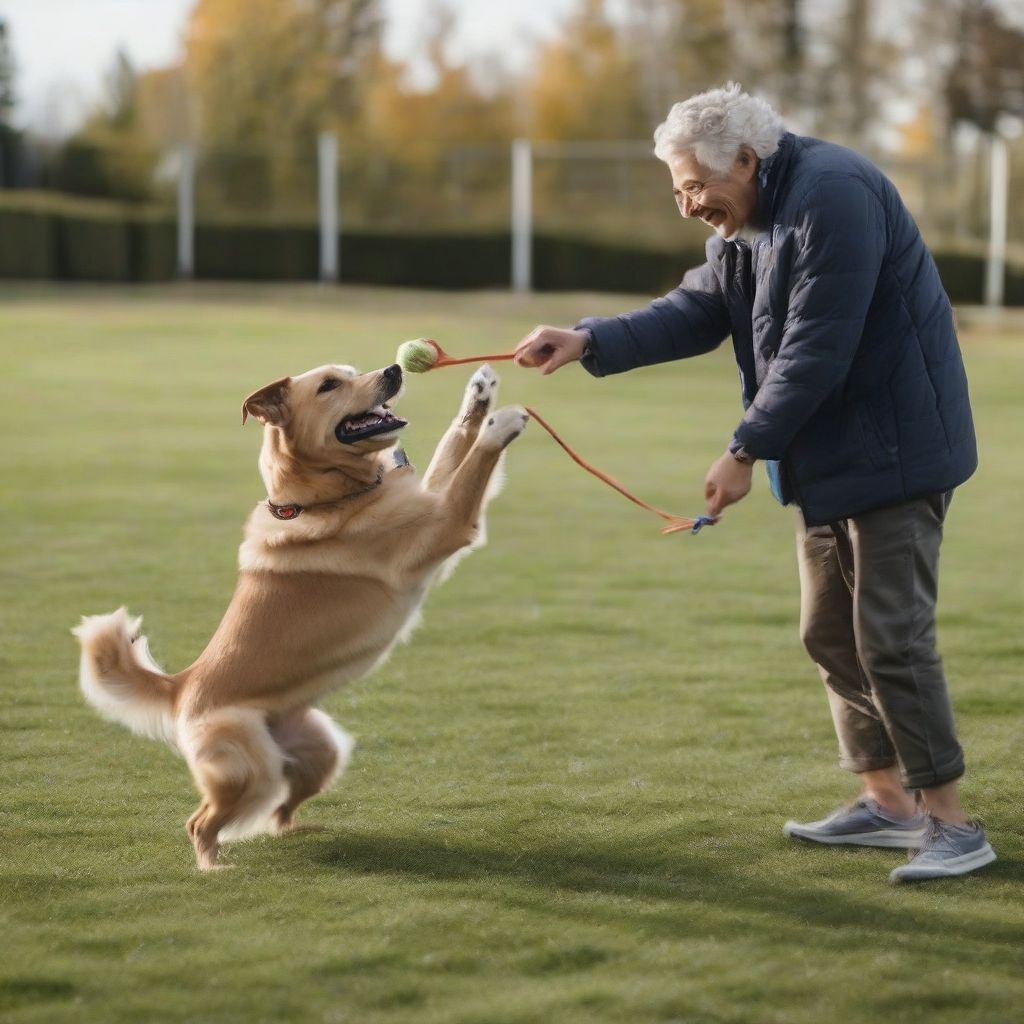You taught your old dog to sit, stay, and fetch a thousand times. Now, those familiar commands seem lost in the fog of their golden years. Does this sound familiar? Don’t worry, you’re not alone. Many pet parents find themselves navigating the unique challenges and rewards of training older pets. But here’s the good news: it’s absolutely possible! With patience, understanding, and a sprinkle of creativity, you can teach your furry friend new tricks—or even refresh old ones.
Understanding Your Senior Pet
Just like us, our pets experience physical and mental changes as they age. Their senses might dull, their joints may stiffen, and their energy levels can fluctuate. Before embarking on a training journey, it’s crucial to visit your veterinarian. A check-up can rule out any underlying medical conditions that could be affecting their behavior or learning ability.
Common Age-Related Changes in Pets:
- Cognitive Decline: Senior pets can experience a decline in cognitive function, similar to the early stages of dementia in humans. This might manifest as confusion, disorientation, or forgetting previously learned commands.
- Arthritis and Joint Pain: Stiffness and pain can make moving difficult and impact your pet’s willingness to participate in training.
- Vision and Hearing Loss: Difficulty seeing or hearing can lead to confusion and frustration during training.
- Changes in Sleep-Wake Cycles: Senior pets may sleep more during the day and experience restlessness at night.
Adapting Training Techniques
Remember those high-energy puppy training sessions? Those days are gone. Older pets often benefit from shorter, more frequent training sessions. Keep these key principles in mind:
- Patience is Key: Your senior pet may learn at a slower pace than when they were younger. Celebrate small victories and avoid getting discouraged.
- Positive Reinforcement: Just like with younger pets, rewards-based training using treats, praise, and petting is highly effective.
- Clear Communication: Use hand signals along with verbal commands, especially if your pet is experiencing hearing loss. Speak clearly and calmly.
- Make it Fun: Choose a quiet, comfortable environment for training sessions, and incorporate games and activities your pet enjoys.
Addressing Common Behavioral Issues
Age-related changes can sometimes lead to new or challenging behaviors. Here’s how to address some common issues:
Housebreaking Accidents:
- Rule out medical causes: Urinary tract infections or other conditions can cause accidents.
- Establish a regular routine: Take your pet outside frequently and immediately after meals and naps.
- Use positive reinforcement: Praise and reward them for going potty outside.
- Clean accidents thoroughly: Use an enzymatic cleaner to eliminate odors that might attract them back to the same spot.
Increased Anxiety or Confusion:
- Provide a safe and predictable environment: Stick to a consistent routine and minimize changes in their surroundings.
- Use calming aids: Pheromone diffusers, calming treats, or music can help reduce anxiety.
- Consult your vet: Your veterinarian can recommend medications or therapies for anxiety if necessary.
The Joys of Training Older Pets
While it might require adjustments and patience, training older pets can be incredibly rewarding. You’ll deepen your bond, stimulate their minds, and provide them with a sense of purpose and accomplishment.
Remember, the goal isn’t to turn your senior dog into an obedience champion, but to enrich their lives and keep their minds and bodies active. So, embrace the journey, celebrate the small wins, and cherish the special bond you share with your seasoned companion.
Conclusion
Training older pets presents unique challenges and rewards, but it’s a journey worth taking. By understanding your pet’s changing needs, adapting your training methods, and addressing any behavioral changes with patience and compassion, you can strengthen your bond and enrich your furry friend’s golden years.
Remember, it’s never too late to teach an old dog new tricks – or simply enjoy the love and companionship of your faithful friend. If you’re struggling with specific training challenges or concerns, don’t hesitate to reach out to a certified professional dog trainer or your veterinarian for guidance.
 Training a Senior Dog
Training a Senior Dog
[amazon bestseller=”dog training for older dogs”]
